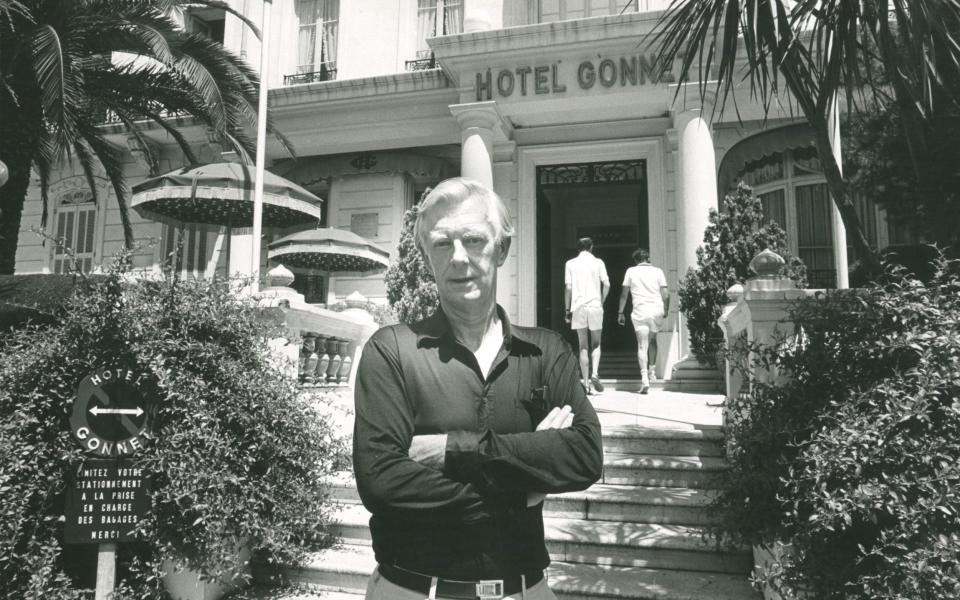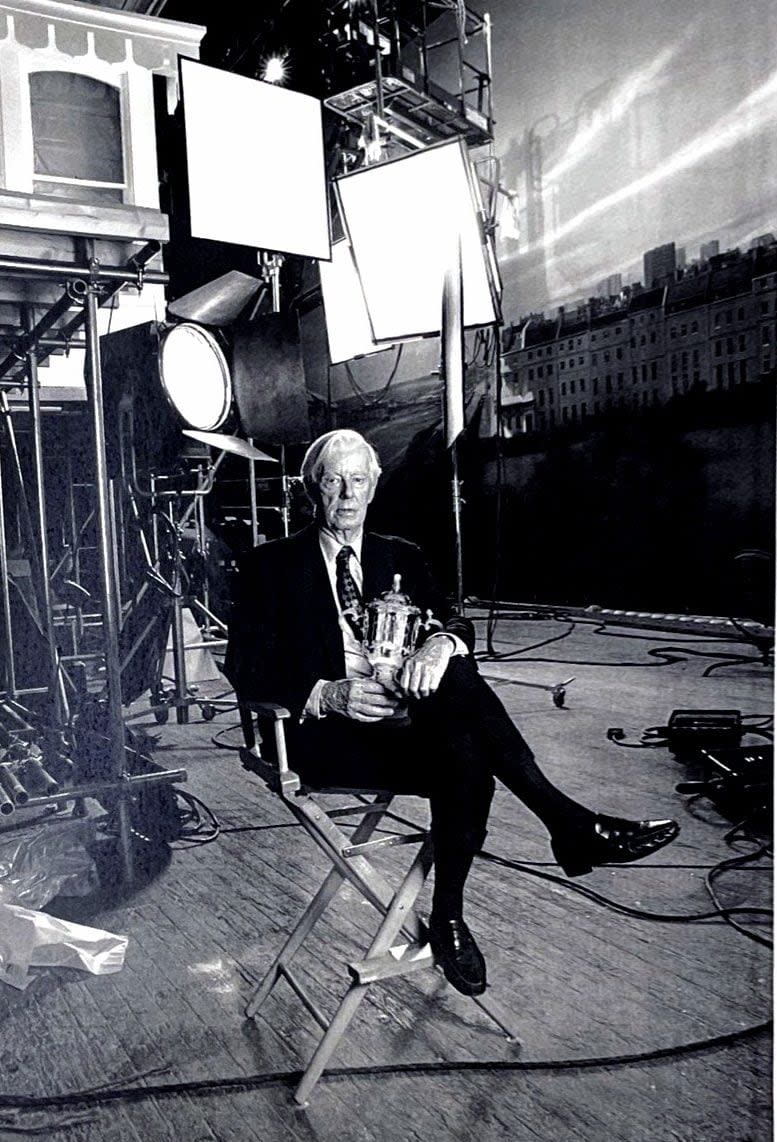Jim Garrett, advertising film-maker who took on the challenge of improving Ted Heath’s media image – obituary

Jim Garrett, who has died aged 94, was the doyen of film producers for the British advertising industry; he was also one of a team who did their best to remodel the media image of the Conservative prime minister Edward Heath.
It was Garrett’s own belief that the kudos for successful advertising campaigns belonged to the agencies who led them, rather than the production companies – such as his own, James Garrett & Partners – that commissioned directors and assembled resources to make the films the agencies needed. “We’re the gentleman’s gentleman’s gentleman of the business,” he told Campaign magazine.
He nevertheless had a hand in many of the most memorable ads of his era, including (directed by Tony Smith for the J Walter Thompson agency) the long-running late-1980s “Beattie” series for British Telecom, featuring Maureen Lipman as a Jewish grandmother famously saying, when she hears her grandson has flunked his exams, passing only pottery and sociology: “He gets an ology and he says he’s failed… you get an ology, you’re a scientist…”
Fellow professionals especially admired British Airways’ 1983 “Manhattan” ad (directed by Richard Loncraine, a long-time associate of Garrett, for Saatchi & Saatchi), in which the island of Manhattan came into land at Heathrow – a landmark in the use of special effects in advertising. In the 1990s, Locraine and Garrett were also responsible for the seductively Gallic “Nicole-Papa” series, commissioned by the Publicis agency for the Renault Clio.
Meanwhile, in 1968 Garrett had been asked by a friend at Conservative Central Office to join a secret group of communications professionals tasked with making Edward Heath, the party leader, more attractive to television viewers. “Heath wasn’t into the idea of using TV to promote the party or himself,” Garrett recalled. “He thought he could talk to voters via a letter in The Times. He also had an awkward and unpredictable sense of humour, but … nobody got it. People were frightened of him.”
The result was a series of broadcasts (some directed by the Porridge co-writer Dick Clement) and stage-managed appearances that sought to show Heath’s better side, turning him from “a man seen as out of touch, unpopular, pretentious, snobbish and rude into one who was interesting, accessible, thoughtful and familiar”.
And apparently it worked: contrary to poll predictions of an easy Labour victory in the 1970 general election, “the repackaged member for Bexley” triumphed with a majority of 30.
James Leslie Michael Peter Garrett was born in Bristol on October 20 1928, the second of three brothers. Their father Reginald was a schoolmaster whose family were in the wine trade; their mother Eve, née Walmesley, was an illegitimate daughter of the owner of the Lucknam Park estate in Wiltshire.
Jim was educated at Builth Wells County Grammar School and Bristol Grammar School, where he was head boy. Disqualified from Army service for medical reasons, he was introduced by his headmaster to the documentary film-maker Basil Wright, who helped to start his career.
In 1949 he joined the newly created British Transport Films as a junior assistant director, while also becoming a shop steward for the film trade union ACTT. Though “fascinated and appalled” by the way the communists in charge manipulated the union’s affairs, he rose to be vice-president in charge of its documentary section.
As the popularity of television grew – particularly after the televising of the Coronation in 1953 – Garrett was early to spot the potential of filmmaking for the advertising industry.
Shortly before the launch of UK commercial television in 1955 he joined Pearl & Dean, and the following year he became a senior producer for TV Advertising, then London’s biggest commercials production company.
In 1963 he broke away, with the director Richard Lester to form James Garrett & Partners, which within three years had taken over the top spot in the sector, handling notable campaigns for Benson & Hedges, After Eight, Sunsilk and others.

One client described the firm’s offering as “utterly tasteful, utterly reliable… and that reflects Jim”. Garrett himself combined gentlemanly manners and calmness under pressure with bon vivant tastes – often involving long, white-wine-fuelled lunches at the White Tower restaurant in Fitzrovia.
He was also a serial venture capitalist, working on a theory of “emotional money versus slide-rule money” in which the former would always be riskier but potentially more profitable than the latter.
With mixed results, he backed more than a dozen smaller companies in the film industry as well as diversions into car hire and headhunting. One that counted as a success was Terence Donovan Productions, which helped the fashion photographer Donovan to move into film directing.
Garrett also ventured to New York and Los Angeles, attracting streams of work to London for clients such as Gillette, Polaroid and Pepsi Cola.
A past president of the Thirty Club – advertising’s most exclusive dining club – he retired only when he reached 75 in 2003, declaring that besides work he had no other obsession except rugby.
Jim Garrett married, in 1954, Margot Fleischner, a Czech-born film editor who he first met when both worked at British Transport Films. She survives him with their sons Stephen and David, who also both work in the film industry.
Jim Garrett, born October 20 1928, died January 2 2023

 Yahoo Sport
Yahoo Sport 





































